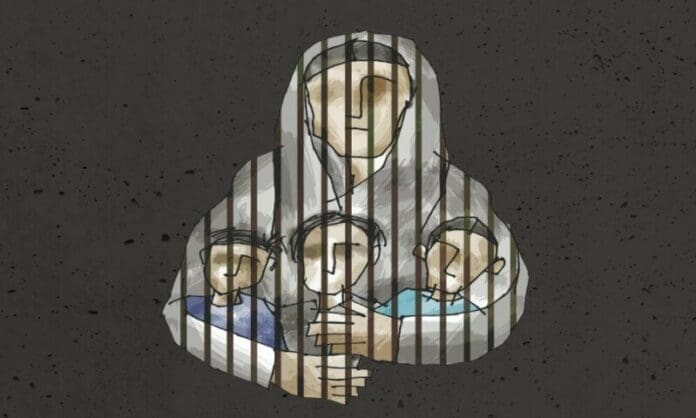Women prisoners in Pakistan who do not have anyone to care for their children often bring them to prison with them. However, the conditions in Pakistani jails are detrimental to the upbringing of these children. In one case, a pregnant housewife from Sheikhupura was sentenced to one year in prison in 2021. She expressed her concern for her unborn child, as she did not know when she would be released. She gave birth in jail and her baby stayed with her until she completed her sentence. Another former inmate had her two-year-old child with her during her three-year prison term and complained about the insufficient and unhealthy food provided for children in jail. She also criticized the inadequate education facilities, with unqualified teachers and old and unreadable books.
The women in jail also face challenges in breastfeeding their children due to the lack of privacy, leading to ridicule from others and mistreatment by jail wardens. The psychological and emotional wellbeing of both mothers and children are affected by the violence they endure in jail. Moazzam Ali Shah, a lawyer and prison reform advocate, noted that most children living with their imprisoned mothers are under the age of six.
Furthermore, prison infrastructure lacks proper arrangements and products for women’s hygiene needs, such as menstrual health. Women prisoners often struggle to obtain sanitary pads and resort to using makeshift alternatives. Sexual violence against female prisoners is also prevalent, with reports of abuse by male prison guards. The lack of women-only sections in jails and the shortage of female prison staff contribute to these abuses going unchecked. The absence of monitoring mechanisms and accountability further hinders the reporting of abuses.
The overcrowding in prisons, particularly in women-only sections, exacerbates the lack of adequate healthcare. The availability of medical staff, including gynecologists and mental health specialists, is insufficient. The unsanitary conditions in overcrowded prisons contribute to the spread of diseases. The Islamabad High Court has ruled such conditions as cruel and inhumane treatment, emphasizing the need for reform and the potential for prisoners to seek damages against prison authorities and the state.
The dire situation in Pakistani prisons, specifically in Punjab, has been highlighted in reports by organizations such as Justice Project Pakistan and Human Rights Watch. These reports shed light on the deficiencies in prison healthcare and the need for significant reforms to improve the conditions for prisoners.
